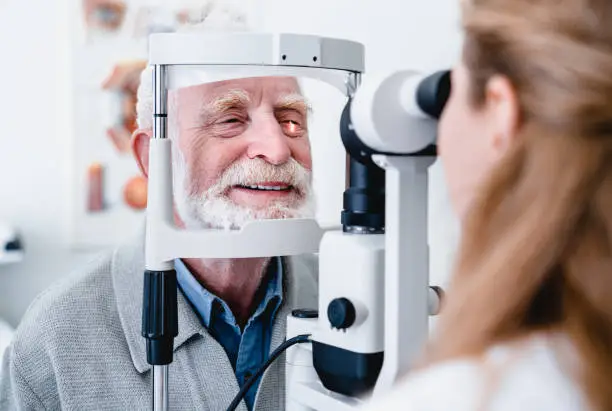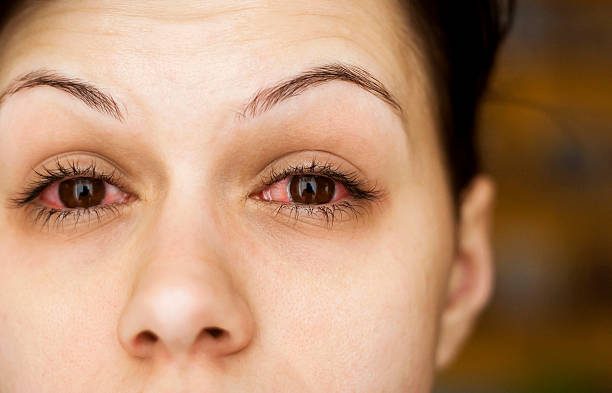Advanced Glaucoma Care Now at Pawana Specialty Clinic – Expert Diagnosis & Treatment for Healthy Vision!”
Glaucoma

Understanding Glaucoma: The Silent Thief of Sight
Every year, World Glaucoma Week is observed to raise awareness about one of the leading causes of irreversible blindness. In 2025, this global initiative will take place from March 9 to March 15, bringing attention to the importance of early detection and management of glaucoma.

What is Glaucoma?
Glaucoma is a group of eye diseases that damage the optic nerve, often due to increased pressure in the eye. This condition can gradually steal vision without any noticeable symptoms in the early stages, earning it the nickname “The Silent Thief of Sight.”
There are different types of glaucoma, including:
Open-Angle Glaucoma: The most common type, where fluid drains too slowly from the eye, increasing internal pressure.
Angle-Closure Glaucoma: A less common but more severe form that can develop suddenly and cause rapid vision loss.
Normal-Tension Glaucoma: Even without high eye pressure, optic nerve damage can still occur.
Secondary Glaucoma: Caused by other conditions like diabetes, inflammation, or eye injuries.
Congenital Glaucoma: A rare condition present at birth, often due to improper development of the eye’s drainage system.
Why is Awareness Important?
According to the World Health Organization (WHO), glaucoma affects millions worldwide, with many unaware that they have the condition until significant vision loss occurs. Early detection through regular eye check-ups is crucial, as timely treatment can help slow or prevent further vision loss.
Impact of Glaucoma on Daily Life
Glaucoma not only affects vision but also impacts daily activities such as driving, reading, and recognizing faces. People with glaucoma may struggle with depth perception, contrast sensitivity, and navigating in low-light conditions. As vision loss progresses, it can lead to increased dependency and reduced quality of life.

Risk Factors for Glaucoma
While anyone can develop glaucoma, certain individuals are at higher risk, including:
-
People over the age of 40
-
Those with a family history of glaucoma
-
Individuals with diabetes or hypertension
-
Patients with high eye pressure (intraocular pressure)
-
People with a history of eye injury or long-term use of steroid medications
Symptoms to Watch For
Since glaucoma often progresses silently, routine eye exams are essential. However, some symptoms may indicate advanced stages of the disease, including:
-
Blurred or tunnel vision
-
Eye pain or redness
-
Sudden vision loss
-
Halos around lights

How Can You Prevent Vision Loss?
-
Regular Eye Exams – Early detection through comprehensive eye tests can help in timely treatment.
-
Maintain a Healthy Lifestyle – Controlling blood pressure, exercising regularly, and avoiding smoking can reduce risk factors.
-
Use Prescribed Medications – If diagnosed, adhering to prescribed eye drops and medications can help manage the condition effectively.
-
Protect Your Eyes – Wearing protective eyewear during sports or activities that may cause eye injury is essential.
Diagnosis and Treatment Options
Glaucoma is diagnosed through a comprehensive eye exam, including tests for intraocular pressure, optic nerve health, and visual field loss. Treatment options include:
Medicated Eye Drops: To reduce eye pressure and prevent further damage.
Laser Therapy (Trabeculoplasty or Iridotomy): To improve drainage and reduce pressure.
Surgical Procedures (Trabeculectomy, Drainage Implants): For advanced cases where other treatments are ineffective.
Pawana Hospital’s Initiative for World Glaucoma Week
At Pawana Hospital, we are committed to spreading awareness and providing the best eye care services. During World Glaucoma Week, we will be conducting free eye check-ups, awareness sessions, and consultations with specialists to ensure early detection and treatment for those at risk.
Join us in the fight against glaucoma! Book your eye check-up today and take a step towards preserving your vision.
Remember, early detection can save sight. Don’t wait—get your eyes tested today!






